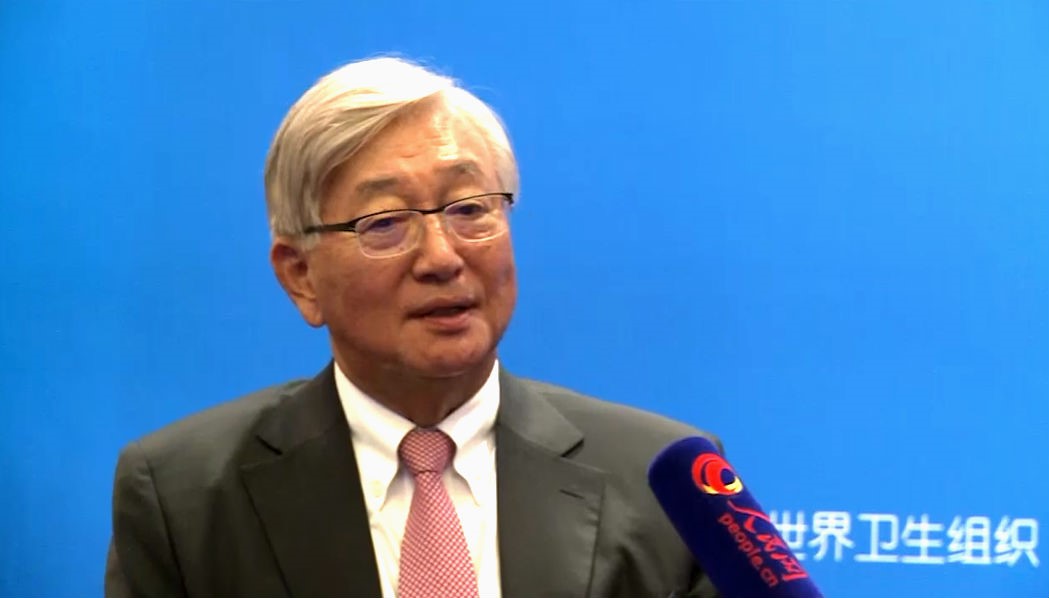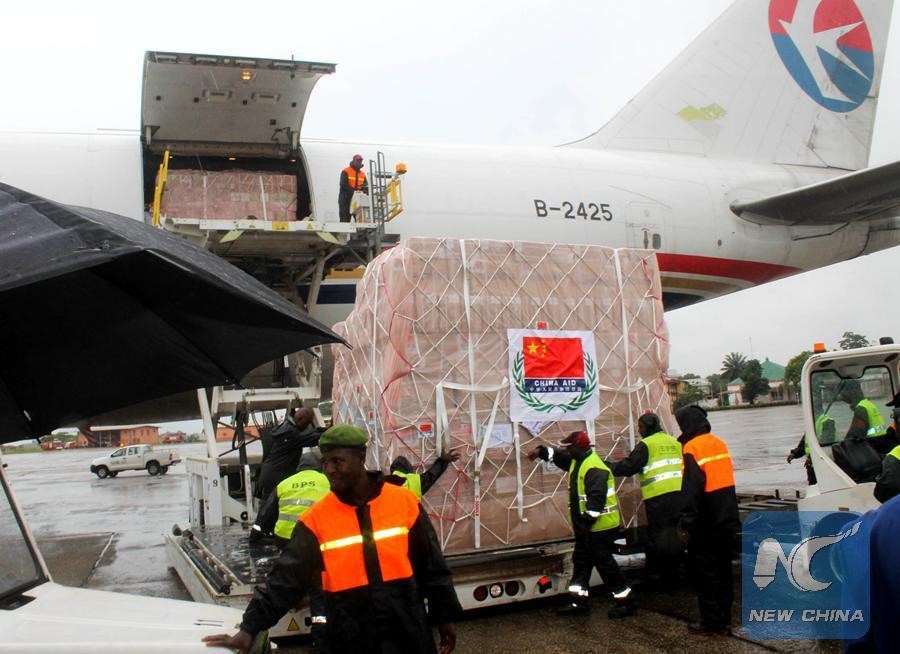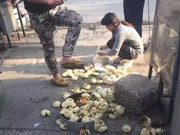


Shin Young-soo, WHO Regional Director for the West Pacific, receives an interview with with People's Daily Online, Nov. 21.
His point was echoed by Shin Young-soo, WHO regional director for the West Pacific. In an interview with People's Daily Online, when asked to rate China's efforts in health development on a scale of one to 100, Shin said, "In terms of China's political commitment to improving national health, I can give, very easily, 100. I have never seen – I have worked with many, many different countries, but this great country's top leaders came into the public, declaring that health is a precondition of the country’s economic development. That is a very, very strong commitment.
"Based on this commitment, you started to have the 2030 [blueprint] and whole national programs have been planned out. A huge mobilization of national resources [has been made] to restore the national health infrastructure and system, and wonderful achievements in rural health," Shin continued.
Bumpy road ahead
"[The] biggest success comes with challenges as well," Schwartländer noted.
Despite their praise for and confidence in a healthier future for China, WHO officials suggested ways to solve some of the challenges facing the country.
"One of the challenges we see today is, China has a very weak primary care system – that is, the care system in places where people are living. Everyone who gets sick runs to an overcrowded hospital to get care. Maybe they don't need the hospital, because the care they need could be much better delivered by a family doctor living in that community. So that's one of the most important things we have to take on, to ensure that we build a very strong primary care system, " Schwartländer noted.
He continued, "Right now, [there are] still many people whose insurance packages don’t cover everything they need. Especially some of the more expensive treatments, like [for] cancer, are not included yet in this insurance package. We have been working very closely with the Chinese government and also insurance companies to make sure that, step by step, they can increase the package ... So not only will everybody have basic access, but what is included – what they can get without having to pay their own money – will increase over time."
Shin commented that China needs to do more in terms of building a tobacco-free society and tackling environmental pollution, the latter of which is already a strong commitment for China, he noted. But he expressed a very tolerant view of the current shortfallings.
"To achieve better health of Chinese people, China needs more time to consolidate what it has achieved. The negative effects are, simply put, the cost of social and economic development. Because China has been developing unprecedentedly in our old world, in a very short time you have become a big economic power. [This] creates a lot of pollution, more people start to live in urban areas, which requires efforts in sanitation and safe water, and urbanization is also creating a new lifestyle. Some [aspects] are not good. People start to eat hamburgers, but traditional Chinese eating is much better.
"This is the process of development. You have developed, then you found a lot of side effects, then you fix them for more development… China has started to identify this issue and work hard on how to solve it. Eventually, I am sure China will settle these issues," Shin said.
Global Cooperation
Shin believes that many of China's experiences can be shared with or exported to foreign countries.
"Many, many countries in the world are carefully watching China. Because this is a huge population, people want to know how you try to improve yourself. So many developing countries are following in China’s tracks, like Vietnam and some other Asian countries, watching what China is doing. The Chinese should be very proud of this."

Supplies from China are being unloaded from a plane at the airport in Conakry, capital of Guinea, Aug. 11, 2014. [Photo/Xinhua]
Schwartländer also acknowledged China's overseas health efforts.
"China has been at the lead helping the World Health Organization, for example, to tackle Ebola. Many people died in Africa. China was one of the first to send doctors and nurses and hospitals that could be built in tents, to the places where Ebola was a very, very bad problem. That's the starting point for a new way of collaborating internationally.
"China has been the first country that actually has qualified for what we call the emergency medical team, which will be part of a larger network of such teams that WHO can call upon in case emergencies happen somewhere in the world. They can be quickly dispatched and help our efforts to overcome the crisis," he said.
 |

 Who Will Fit The Chinese Roles In Game Of Thrones?
Who Will Fit The Chinese Roles In Game Of Thrones? China's Hubei Shennongjia added to World Heritage List
China's Hubei Shennongjia added to World Heritage List Cute Dog At Fruit Stand Becomes Latest Internet Sensation
Cute Dog At Fruit Stand Becomes Latest Internet Sensation Top 10 livable Chinese cities
Top 10 livable Chinese cities The last primitive tribe in China
The last primitive tribe in China China's first intelligent security robot debuts in Chongqing
China's first intelligent security robot debuts in Chongqing A Total of 3,552 Subscribers Vanish In Two Days; YouTube Closes All Doors to Users’ Inquiries
A Total of 3,552 Subscribers Vanish In Two Days; YouTube Closes All Doors to Users’ Inquiries Out of this world! Futuristic UFO-shaped yacht has its own garden and a stunning underwater viewing deck
Out of this world! Futuristic UFO-shaped yacht has its own garden and a stunning underwater viewing deck An old tea house in Chengdu
An old tea house in Chengdu Furious Customer Crushes All the Buns from Vendor Just Because He Was Given the Wrong Flavor
Furious Customer Crushes All the Buns from Vendor Just Because He Was Given the Wrong Flavor